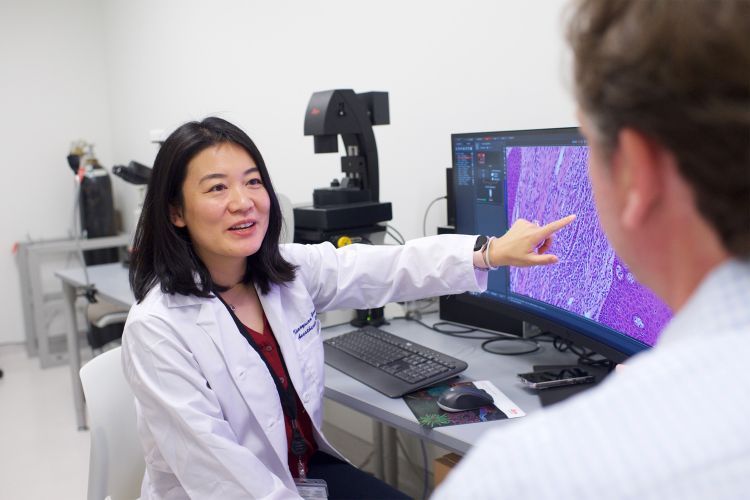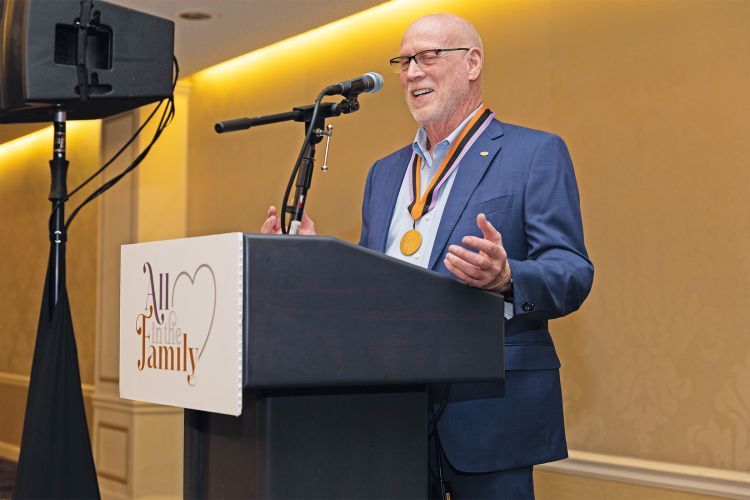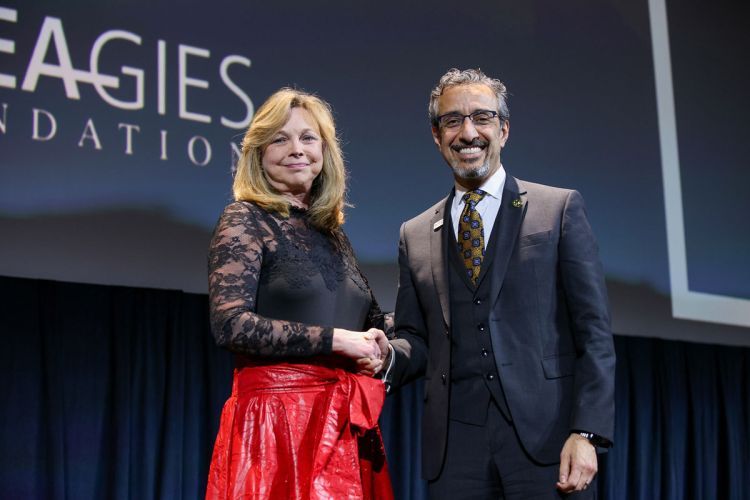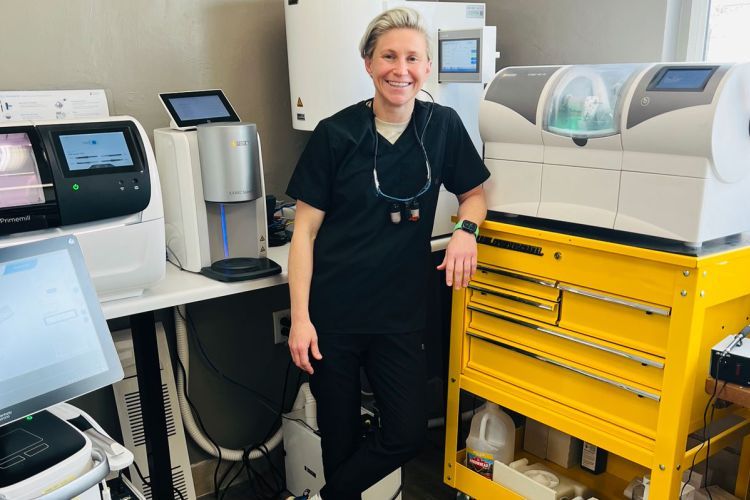Breadcrumb
Dugoni faculty member will fight oral cancer with $700K NIH award

Xiaoyuan Han received funding to study oral cancer, which affects about 1 in 60 men and 1 in 141 women.
Xiaoyuan Han, an assistant professor in the Arthur A. Dugoni School of Dentistry at University of the Pacific, has received a prestigious National Institutes of Health grant for $702,000 to study oral cancer using artificial intelligence tools.
Han, who teaches in the Department of Biomedical Sciences, was awarded a Support for Research Excellence-First Independent Research Award for four years.
“Dr. Han’s work could help identify patients needing early care and increase our ability to provide personalized medical care to treat these patients,” said David Ojcius, assistant dean for research and co-chair of the Department of Biomedical Sciences.
The award will provide opportunities for predental and predoctoral dental students to participate in research and collaborate with a multidisciplinary team to improve oral pathology diagnosis, Han said.
She is the first researcher at Pacific to receive the award, which aims to provide students, especially those from underrepresented groups, with research opportunities.
“I am interested in the mentoring programs to support these students,” she said. “With the funding support and the excellent research experience, they also will be able to attend workshops and present in research symposiums.”
The grant is expected to help provide individualized care with enhanced diagnostic accuracy.
“Our students will develop and apply innovative artificial intelligence tools on data analysis in my research project,” said Han, who will collaborate with the Stanford School of Medicine. “We will employ a multiplexed imaging approach, imaging mass cytometry, which simultaneously measures more than 50 markers to study complex and heterogeneous human tissues.”
According to the American Cancer Society, the risk of developing oral cavity and oropharyngeal cancer (head and neck area) is about 1 in 60 for men and 1 in 141 for women. The average age of those diagnosed is 64.
“Oral cancer is one of the most common malignancies worldwide, accounting for approximately 2% of all cancer diagnoses,” Han said. “I hope our research will identify a reliable biomarker to help early detection of oral cancer.”





